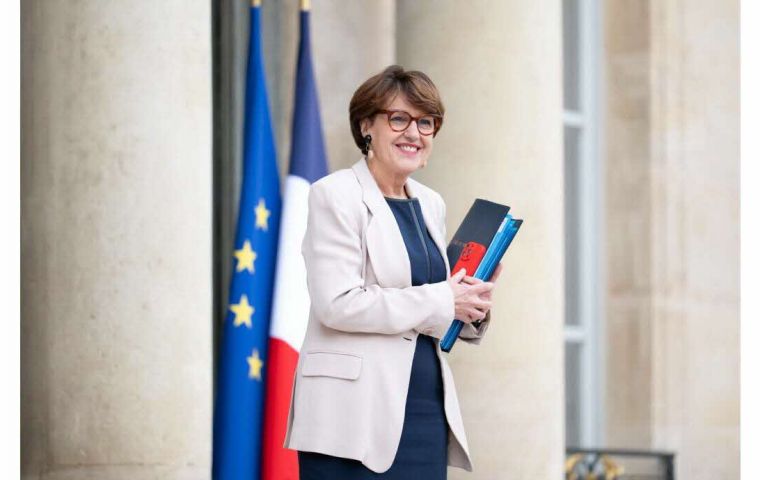MercoPress. South Atlantic News Agency
French minister vows to block EU-Mercosur FTA out of concern for its farmers
 Genevard warned that unless these guarantees are “in writing, validated and accepted by Mercosur partners,” France will maintain its opposing stance
Genevard warned that unless these guarantees are “in writing, validated and accepted by Mercosur partners,” France will maintain its opposing stance France has once again cast a negative note on the proposed Free Trade Agreement between the European Union (EU) and the Southern Common Market (Mercosur). Agriculture Minister Annie Genevard stated emphatically that her country would not sign a deal that “condemns its farmers.”
The minister's remarks in an interview with the weekly Journal du Dimanche (JDD) on Sunday highlight a clear distance from the recent “quite positive” comments by President Emmanuel Macron during his diplomatic tour of Latin America.
Genevard reiterated the French government’s “red lines,” emphasizing that the deal cannot move forward without three key guarantees for the agricultural sector:
First, an emergency brake mechanism should be triggered if a massive price threat looms for the sector due to a surge in imports.
Second, rules to prevent the entry of products that do not comply with European health and environmental standards need to be set forth.
And third, reinforced sanitary controls with stricter checks on imported goods would need to be in place.
The most sensitive issue for Paris is the potential impact of imports of beef, sugar, rice, and soy from Mercosur nations (Argentina, Brazil, Uruguay, and Paraguay) on the internal prices and competitiveness of European producers.
Genevard warned that unless these guarantees are “in writing, validated and accepted by Mercosur partners,” France will maintain its opposing stance.
The minister’s firm position follows internal tension sparked by President Macron's recent tour. While in Brazil, Macron expressed guarded optimism about the deal but promised to “maintain vigilance.” His comments drew criticism from French agricultural unions, the opposition, and even elements within his own party, who accused the president of giving in to pressure from Brussels. The President later attempted to soothe tensions, clarifying that “France is still waiting for clear answers” before giving its final approval.
In stark contrast to the French caution, Brazilian President Luiz Inácio Lula da Silva has been the pact's most vocal defender in South America. Speaking at the Celac–EU Summit in Santa Marta, Colombia, Lula argued that signing the deal would be a “signal against unilateralism” and an opportunity to “reverse the role of Latin America as a mere provider of raw materials and cheap labor.”
Lula expressed confidence that the signing could take place on December 20 during the Mercosur summit in Rio de Janeiro, despite acknowledging “persistent resistance” within the European Union. He stressed that the treaty would integrate two of the world's largest free-trade areas, encompassing a market of 718 million people.
The EU-Mercosur agreement, negotiated for over two decades, was politically validated by the European Commission in September 2025 but still requires ratification by all 27 member states. Several countries, including Poland, Austria, Ireland, Hungary, and the Netherlands, share France's environmental and social reservations.
The diplomatic standoff highlights the fragility of the agreement. With the current Brazilian administration pushing for a swift conclusion and France solidifying its position as the main obstacle, the long-negotiated trade pact remains on an uncertain footing.




Top Comments
Disclaimer & comment rules-

Read all commentsTypical Macron, he talks one story whilst his government does the opposite.
Nov 11th, 2025 - 04:38 pm 0It will be interesting to see how this one plays out.
In theory, as I understand it, it can pass with a ‘qualified majority’ vote in the EU and so come into effect despite the French objections.
However, then the French will block everything else and stop the EU from being able to function on even a basic level (well, insofar as it ever does), until they get concession that make the agreement almost worthless for S. America.
We shall see.
Commenting for this story is now closed.
If you have a Facebook account, become a fan and comment on our Facebook Page!